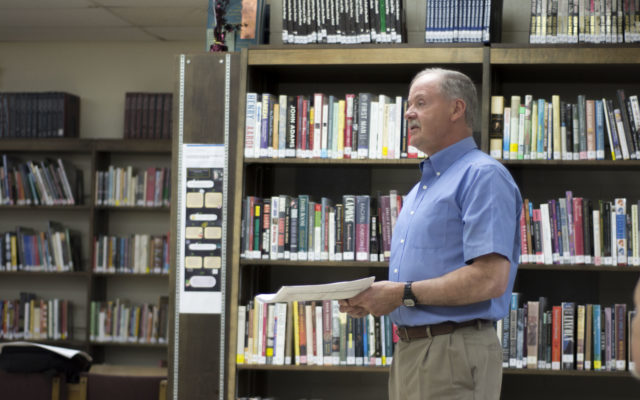
CARIBOU, Maine — RSU 39’s new $50 million school project in Caribou recently faced some uncertainty with only one bid for construction coming in at $12 million over the proposed budget. But following negotiations with both the contractor, Bowman Constructors of Newport, and representatives from the State Department of Education, RSU officials say the new school project should continue according to schedule.
RSU 39 Superintendent Tim Doak said on Thursday that the district was able to negotiate the project costs down by a few million dollars and to get MDOE officials to consider adding $5 million more in state funds.
Thursday night, board members voted to move forward with the project and to approve a contract for the new school building with provisions for certain elements both with and without the additional $5 million.
The State Board of Education first needs to approve the additional funding and that should happen in July, Doak said. Then RSU 39 area (Caribou, Limestone, and Stockholm) voters also would need to approve the additional state funding via referendum.
As it stands, construction for the school is set to begin in June. If state officials and RSU 39 area voters approve the funding, they will be added to the new school, which is now slated for completion in August 2020.
If the state does not approve the additional $5 million, Doak said the base project will be “bare bones,” without new furniture or kitchen equipment and without a biomass boiler.
“We’ll have to use some of our existing furniture,” Doak said, “but will be able to get all our furniture replaced if we get the $5 million. What started out as $12 million over will now be $5 million, and that will come from the state.”
The superintendent said this problem is not unique to Caribou, and that with so many large scale construction projects occurring throughout the state and so few contractors who work on projects of this scope, it created a “perfect storm” in which the market is far more competitive this year than it would have been in 2017.
New School Building Chair Committee Chairman Frank McElwain spoke to the RSU 39 Board about the negotiation process during the May 24 school board meeting at the high school.
“Normally,” he said, “you put out bids, get several bidders, then select the best and you’re off to the races. This has been an interesting time, but all parties put their best foot forward. I’m very impressed with the Bowman brothers, and their willingness to reassess the proposal, and to PDT Architects for looking at cost savings through design changes.”
Some of the design changes, according to Doak, include using less expensive windows and ceiling tiles.
“Some of the subcontractors re-bid,” McElwain said, “and the price of sheetrock and steel came down significantly.”
Without the $5 million in additional funding from the state, the school will not be heated using a biomass boiler, according to the superintendent. RSU 39 board member Clifford Rhome asked Doak how much more an alternative heating method would cost the school annually.
“We’ve run those numbers and PDT says it’s about $45,000 to $50,000 a year,” Doak said, “but others have said we could probably go with propane or liquid gas. We’re in the land of wood chips up here, so we should hopefully be able to get the [biomass boiler] in the new school.”
Board Member Ron Willey asked McElwain if he was disappointed that reductions had to be made.
“Frank,” Willey asked, “on a disappointment scale of one to ten, with ten being very disappointed, how disappointed were you?”
“I was very disappointed, but I had to let that go,” McElwain said, “and when we first saw the list [of reductions] I thought, ‘What are they doing to our wonderful school?’ but when they explained it point by point, I realized it’s going to be a great school for kids.”
Doak agreed, saying he was “probably at a 12” when he first heard about the lone bid and then the proposed reductions to address the cost issues, but that he is now optimistic, and anticipates contractors will begin work on the new facility within the month.
“You could probably see bulldozers out there on the third week of June,” he said.
- New School Building Committee Chair Frank McElwain discusses negotiations regarding reduced costs for a new school project during a May 24 RSU 39 meeting at Caribou High School. (Christopher Bouchard)








